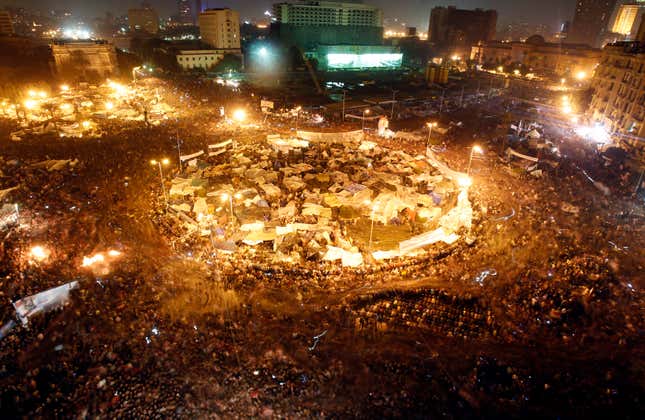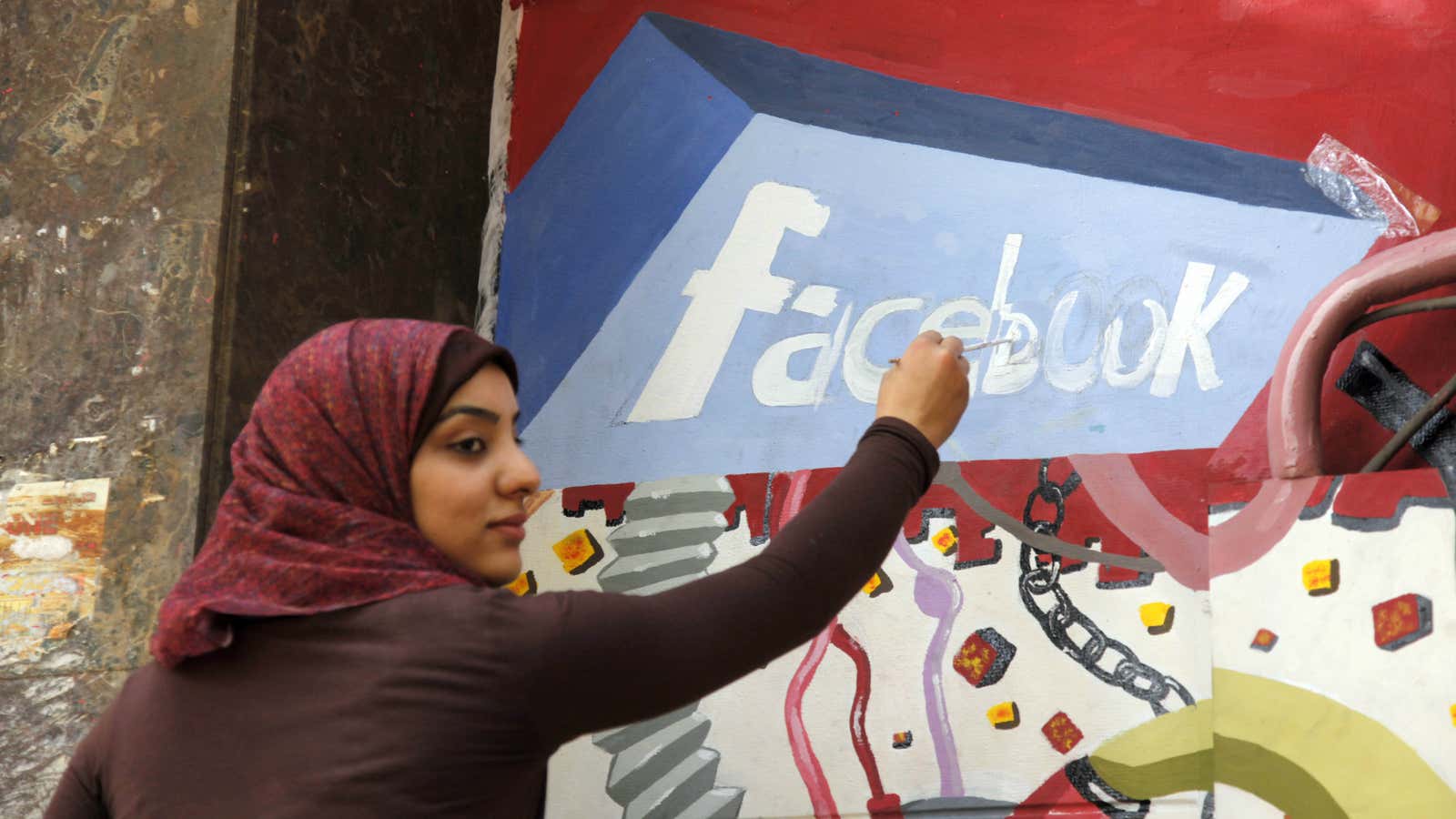Egypt suspended the use of Facebook’s Free Basics platform to its three million users in the country yesterday (Dec. 30). There was no immediate explanation as to why authorities in the north African country decided to shut down the service, according to the Associated Press. In a statement to AP, Facebook said that it was working to “resolve the situation” to restore the platform.
The introduction of Free Basics, which is Facebook’s attempt to provide free, albeit limited, internet access to the world’s unconnected, has proven popular quite quickly in the country, attracting three million users in just two months. A million of these are new internet users who now can connect to Facebook for free, without any need for data.
Yet the service has attracted controversy, especially among net neutrality activists who argue that it violates the principles of the open web by limiting what users can access on the internet through the platform. Last week, India’s Telecom Regulatory Authority (TRAI) asked the social media giant to suspend the service in the country until they can ascertain whether it does not violate net neutrality.
Egypt’s decision to ban the service may not be as high-minded, however. The government could be using the argument over net neutrality to stifle any open criticism of its administration.
Abdel Fattah al-Sisi’s government came to power in 2013 after overthrowing the democratically elected Muslim Brotherhood administration of Mohamed Morsi. And after labeling the Brotherhood a terrorist organization, authorities have spent the last few years cracking down hard on free speech and the press, especially the use of social media, for supposedly national security reasons. Critics, however, say these efforts are geared towards limiting open spaces of expression for Brotherhood supporters.
This week alone saw the interior ministry shut down thousands of Facebook pages and arrest hundreds of people for allegedly using the social media platform to incite violence through inflammatory rhetoric. Last year, the government declared that it is tracking social networking sites for anything that can be deemed a threat against the authorities, including the police.

On top of that, Sisi’s government has approved anti-terrorism laws that now place significant restrictions on what the media can report. Journalists could be fined up to €57,000 if their coverage of terrorism contradicts the official version.
Media activists say the country is in its worst state for journalism in history. In July, the Committee to Protect Journalists (CPJ) said the country has imprisoned the highest number of journalists since it started keeping track of press abuses in 1990. Reporters Without Borders says Egypt is one of the least free places for journalists, ranking the country 158 out of 180 on its 2015 press freedom index.
Social media was an important catalyst in the 2011 revolution that toppled Egypt’s strongman and long-term ruler Hosni Mubarak. Facebook, especially, proved crucial as a tool for activists to organize and disseminate information about the protests.
But in its battle against the Muslim Brotherhood, the Egyptian government has almost criminalized the use of social media for anyone expressing solidarity with the group. Authorities could be using concerns over net neutrality to stifle Facebook’s growth, and in the process plug any outlets that are critical of its increasingly despotic rule.
